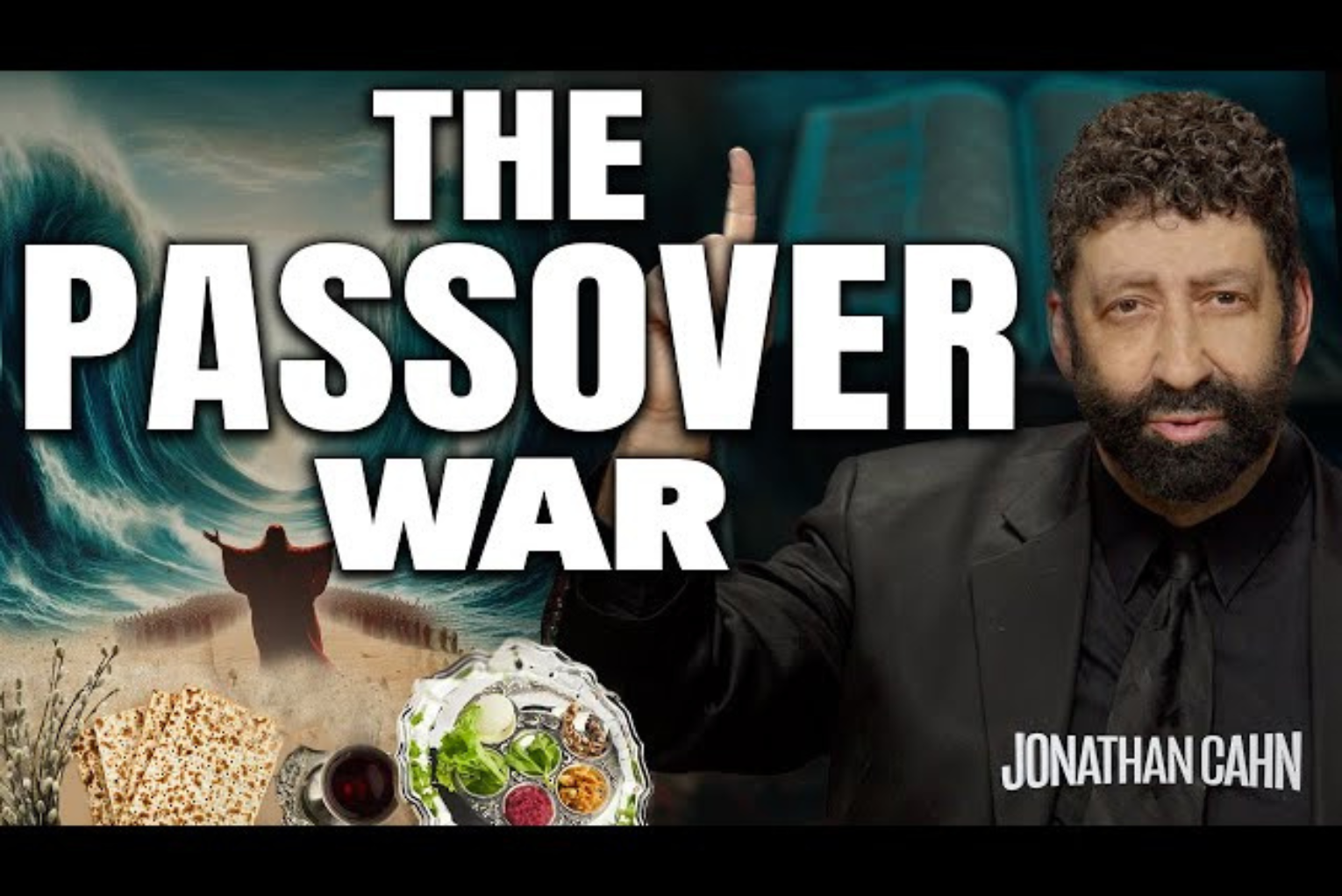Passover just may provide the keys to having a more fulfilled walk with God than we could ever imagine.
In a Passover message, Messianic Rabbi Jonathan Cahn led his congregation through a prophetic Passover Seder, unveiling how the ancient feast foreshadows the redemptive work of Jesus as the Messiah.
“Passover is the Gospel,” Cahn says. “We were slaves in Egypt. God sent the Redeemer. God sent the Lamb. By the blood of the Lamb, we are set free.”
Quoting the words of Jesus at the Last Supper, Cahn reminded the congregation, “I have earnestly desired to celebrate this Passover with you.” He noted that Jesus was not only observing the Seder but also fulfilling it.
Breaking News. Spirit-Filled Stories. Subscribe to Charisma on YouTube now!
The celebration began with the ancient Hebrew blessing: “Blessed are You, Lord God, King of the Universe, who has preserved us alive, sustained us and brought us to this day.”
Holding up the matzoh, the unleavened bread used during the meal, Cahn pointed out, “This is unleavened bread. This is the bread of affliction. It has no leaven. That’s without sin. It’s pierced. It’s striped. It’s broken. This is Messiah, the Bread of Life.”
Cahn’s explanation also touches on the deeper meaning behind each element of the Passover meal, which is rich with symbolism that points to Christ. The unleavened bread, for instance, is not just an ancient custom—it represents Jesus’ sinless body, broken for the forgiveness of humanity’s sins.
He continued to draw parallels between the symbols of the Seder and the life, death and Resurrection of Jesus.
Holding up the bitter herbs, Cahn declared, “This is the bitterness. This is what it was before we knew God. Without God it’s bitter. That’s the bitterness of bondage, of slavery, of sin, of Egypt, of Pharaoh, of Satan. Messiah is the Bread that takes it away.”
This historical act of salvation carries much greater significance in the Christian faith when viewed through the lens of Jesus Christ, the Lamb of God. Jesus, during His Last Supper with His disciples, included the symbols of the Passover, revealing Himself as the ultimate fulfillment of that ancient act of redemption. The bread, representing the body of Christ, and the wine, representing His blood, are not just ritualistic elements; they are markers of the new covenant and the freedom He offers to all who believe.
When it came time for the dipping of the bread—referenced in the Gospel accounts of the Last Supper—Cahn explained its significance.
“That’s the sign when He dipped the matzoh and gave it to Judas. That’s when He said, ‘Nobody takes my life. I give it up freely.’”
The traditional reading of the Haggadah was also part of the evening: “This is the bread of affliction which our ancestors in Egypt partook. Let all who are hungry come and eat.”
As the service progressed, Cahn invited participants to personally encounter the Messiah’s fulfillment of the Passover. “You were a slave, you were in bondage, but He brought you from sorrow to joy, from mourning to rejoicing,” he says.
Just as the Israelites’ freedom was made possible through the blood of the lamb, so too is eternal freedom offered to all through Christ’s sacrificial death. As believers partake in the spiritual inheritance of Passover, they are reminded of the profound cost of their freedom and the everlasting joy of being redeemed by the Lamb.
“Passover literally means the Lamb,” Cahn emphasizes. “The Lamb is central. In Hebrew, the word for Passover—Pesach—is the Lamb.”
The service culminated with the breaking of the afikoman, a hidden piece of matzah that is traditionally wrapped, buried and brought back at the end of the meal. “He was wrapped, buried and came back,” Cahn says. “That’s the Gospel.”
The blood of the Lamb, both in Egypt and on the cross, is the thread that binds every believer to the promise of redemption. Passover reveals God’s unwavering faithfulness to deliver His people, not just from physical bondage, but from the deepest spiritual chains. In the death and Resurrection of Jesus, we see the fulfillment of God’s eternal plan, the victory over sin and death.
As we reflect on the significance of Passover, may we be reminded that through the blood of the Lamb, we are not only set free from our past but invited into a new life of hope, purpose and joy.
Join Charisma Magazine Online to follow everything the Holy Spirit is doing around the world!
Abby Trivett is content development editor for Charisma Media.












































